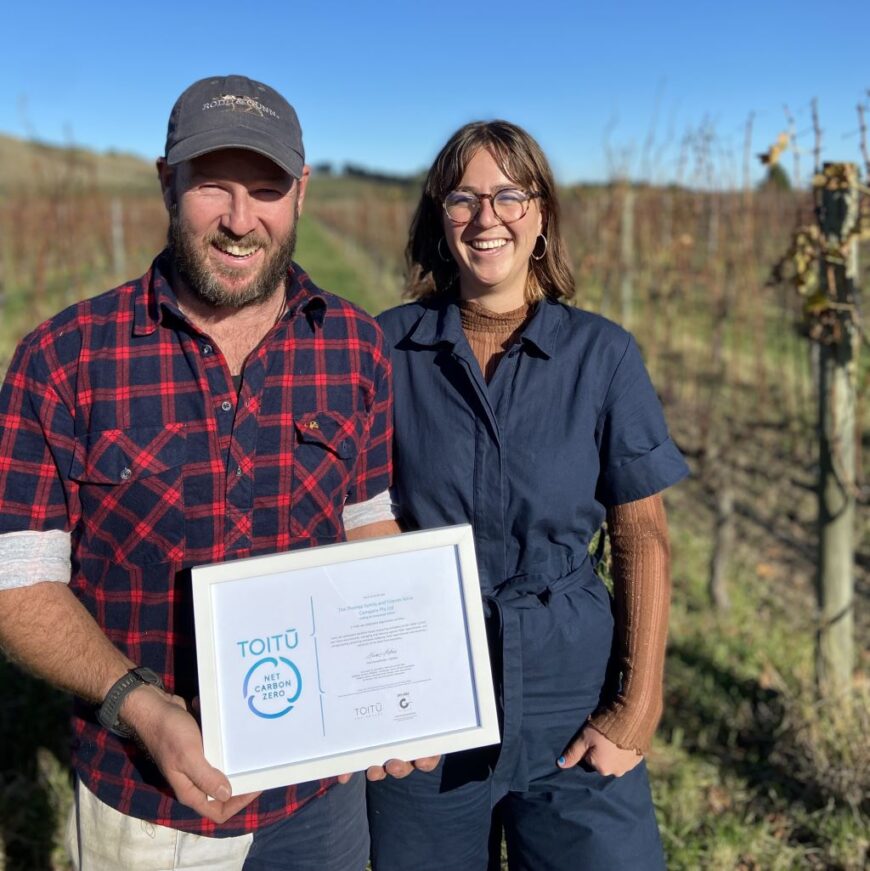Greystone Wines is now Toit? Envirocare net carbonzero certified as part of bold plans to reduce its environmental impact. Greystone marketing manager Nik Mavromatis says the certification is part of Greystone’s innovative and holistic approach to wine growing and making.

“We’re the first winery in the country to be net carbonzero, 100% certified organic with BioGro and practising regenerative viticulture,” says Mavromatis.
“It was a lot of work to get to the point of being carbonzero but wine is the canary in the mine for climate change so we need to try everything we can. If we don’t then we probably only have twenty years left of making wine on this planet,” says Nik.
To achieve Toit? certification, Greystone had to create an emission inventory across the entire company, including travel, how much diesel and petrol they use and measures to counter that.
Greystone company cars are now hybrid, its new Fendt tractors are 50% more fuel-efficient and only carbonzero electricity is used in their strawbale winery. Even the glass bottles have been switched to lighter-weight options across their production.
Greystone viticulturist Mike Saunders says they have also embraced regenerative viticulture, which involves looking at every inch of the farm and vineyard to increase diversity while aiming for a more balanced ecosystem.

“It’s a practice that requires fewer manufactured inputs, working with nature, rather than against it,” says Saunders.
Saunders says a cover cropping programme is helping build organic soil matter and reducing the company’s environmental impact.
“We’ve planted a mix of 16 species, including sunflowers, oats, lentils and beans in between the rows of vines. By retaining living cover crop roots we can sequester, transfer and store carbon between plant and soil,” says Saunders.
Plants that fix nitrogen levels are among those planted, creating a natural fertiliser, while irrigation usage is being decreased by maintaining ground cover.
Saunders says another aspect of the move to regenerative viticulture is the total integration of livestock into the vineyard.
The team re-trained a trial block to a high-wire system where they can now run sheep in the vineyard every day of the year.

“We drive our tractors through these vineyard rows nearly 30 times a year – that’s 200 km every time. Integrating sheep can reduce this by 50%, significantly reducing our use of tractors, cutting down compaction, reducing diesel use and improving nutrient cycling. We even have Pekin ducks living on-site to eat the grass grubs,” says Saunders.
Greystone’s entire 50-hectare vineyard, located in the North Canterbury wine region, is certified organic with BioGro New Zealand. The company has clocked up numerous awards, with the award-winning Vineyard Ferment Pinot Noir produced using an age-old outdoor winemaking method that sees grapes handpicked and fermented outside in the vineyard rows where the fruit is grown.